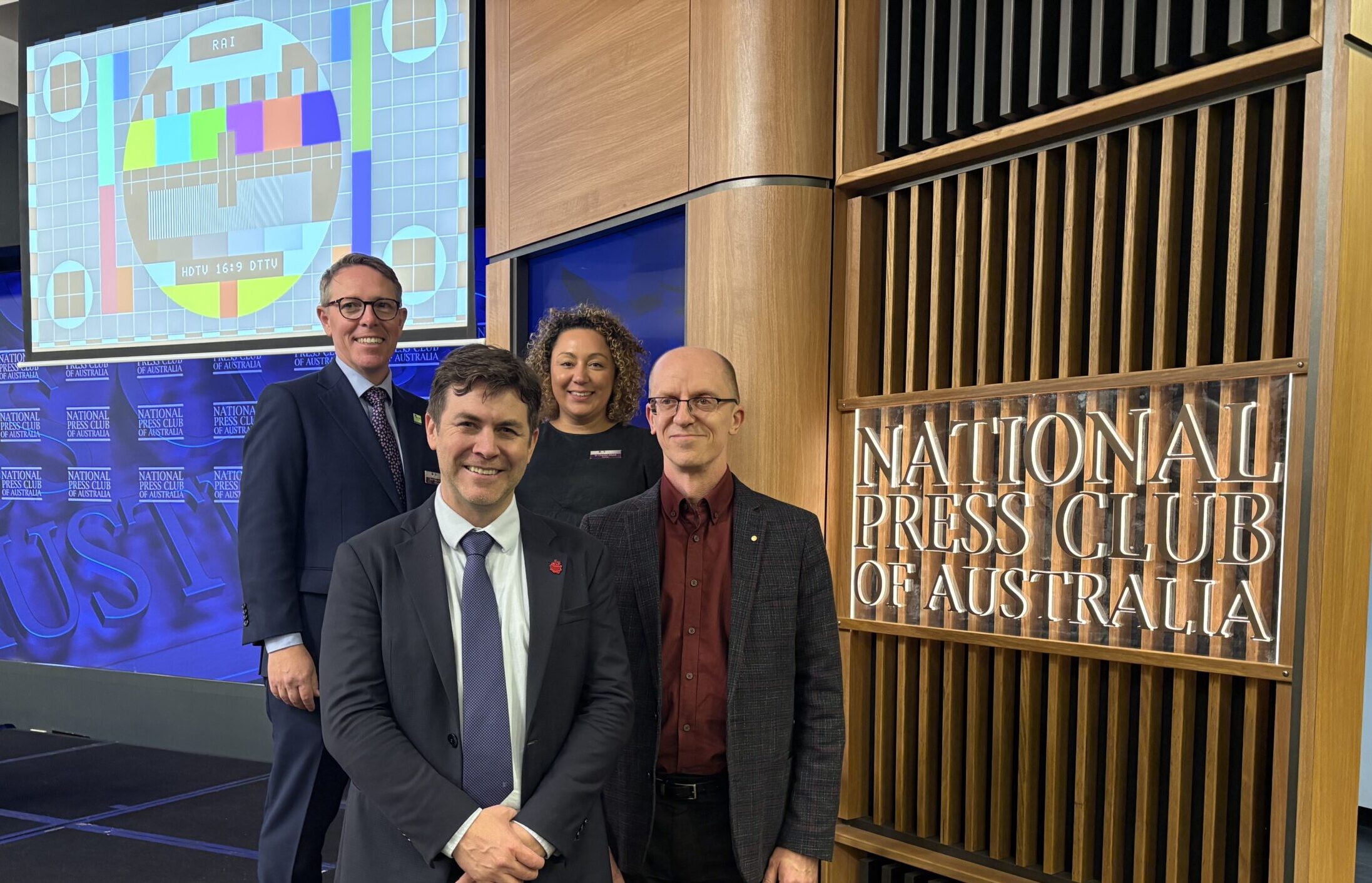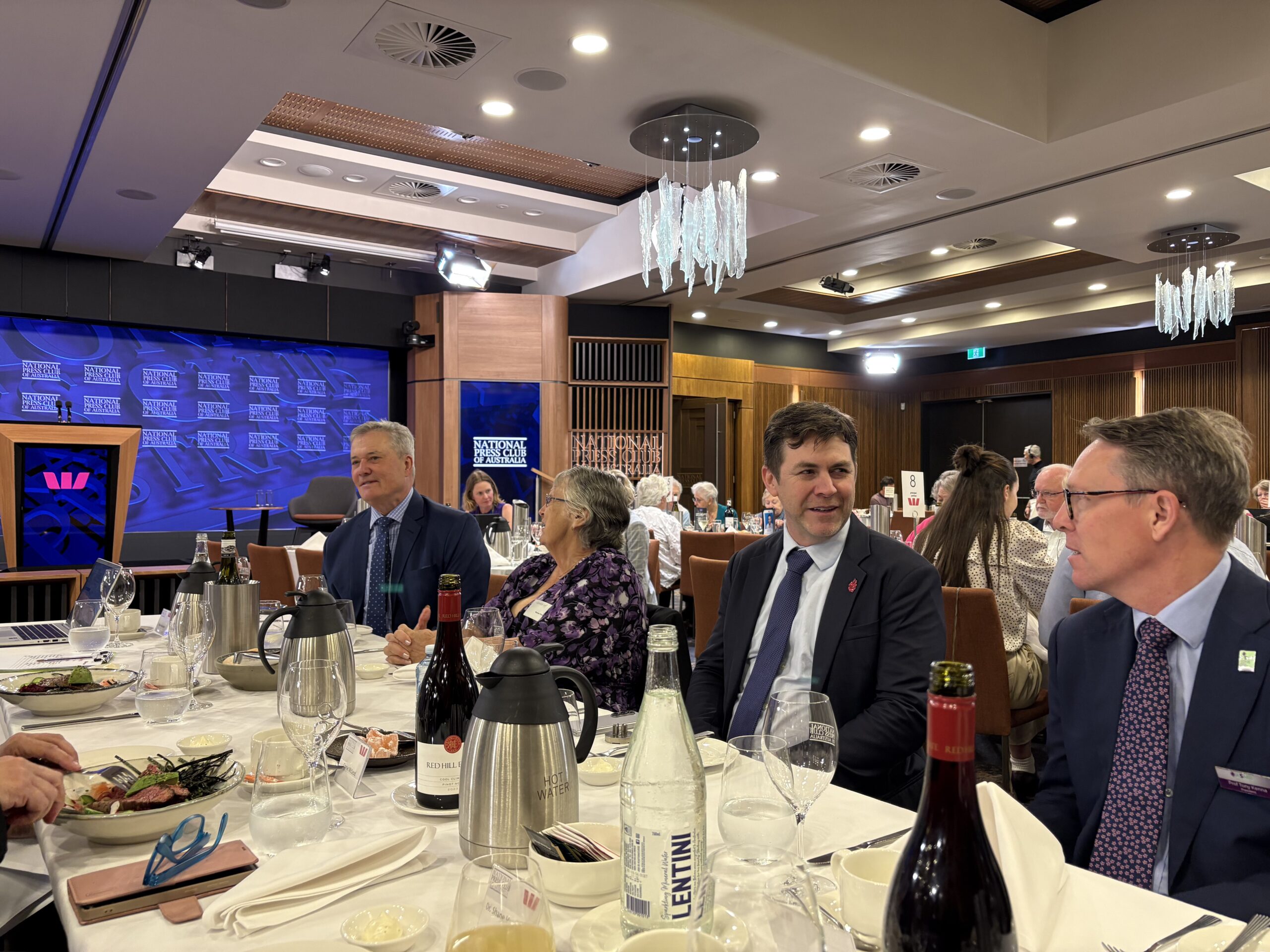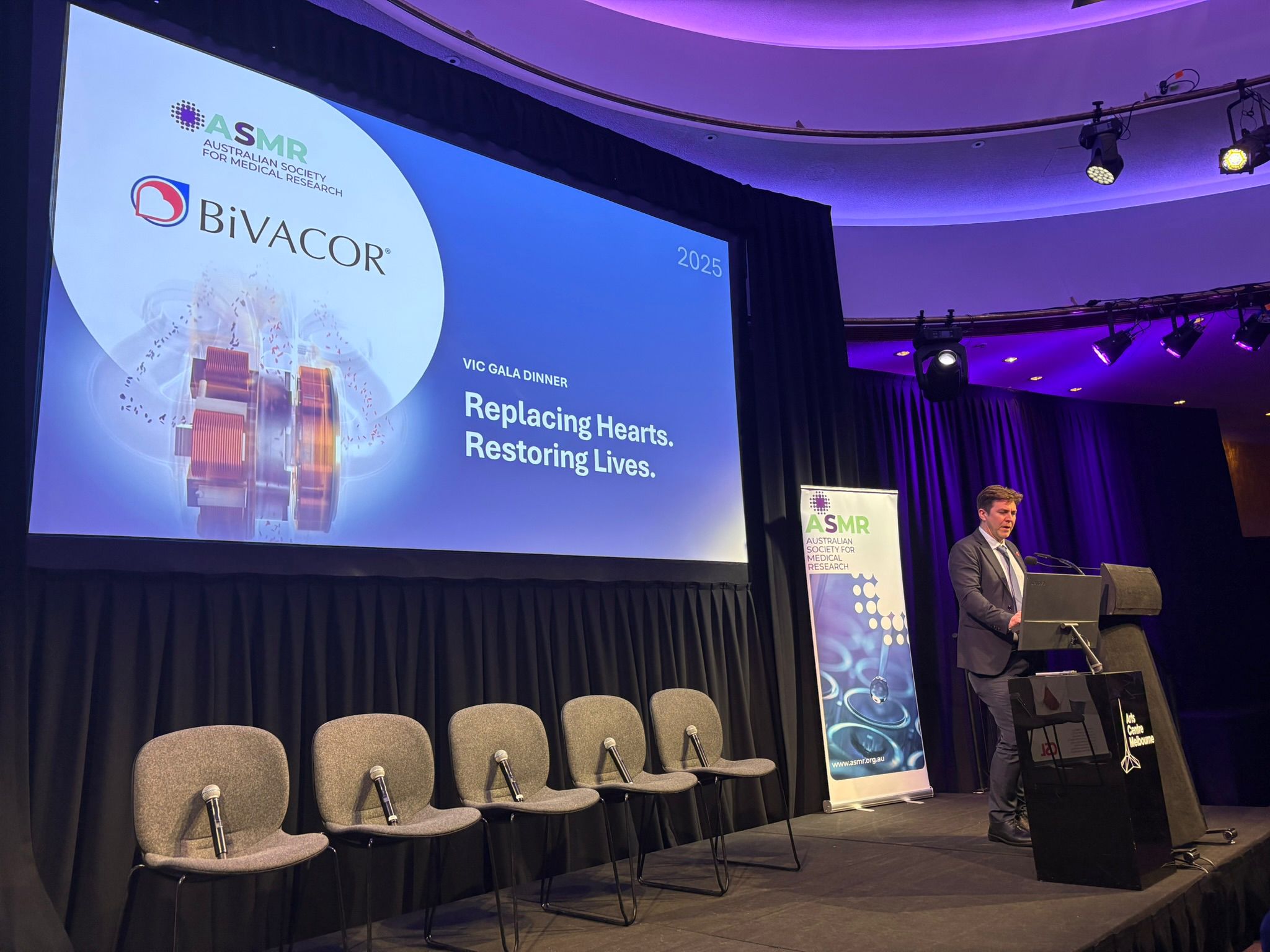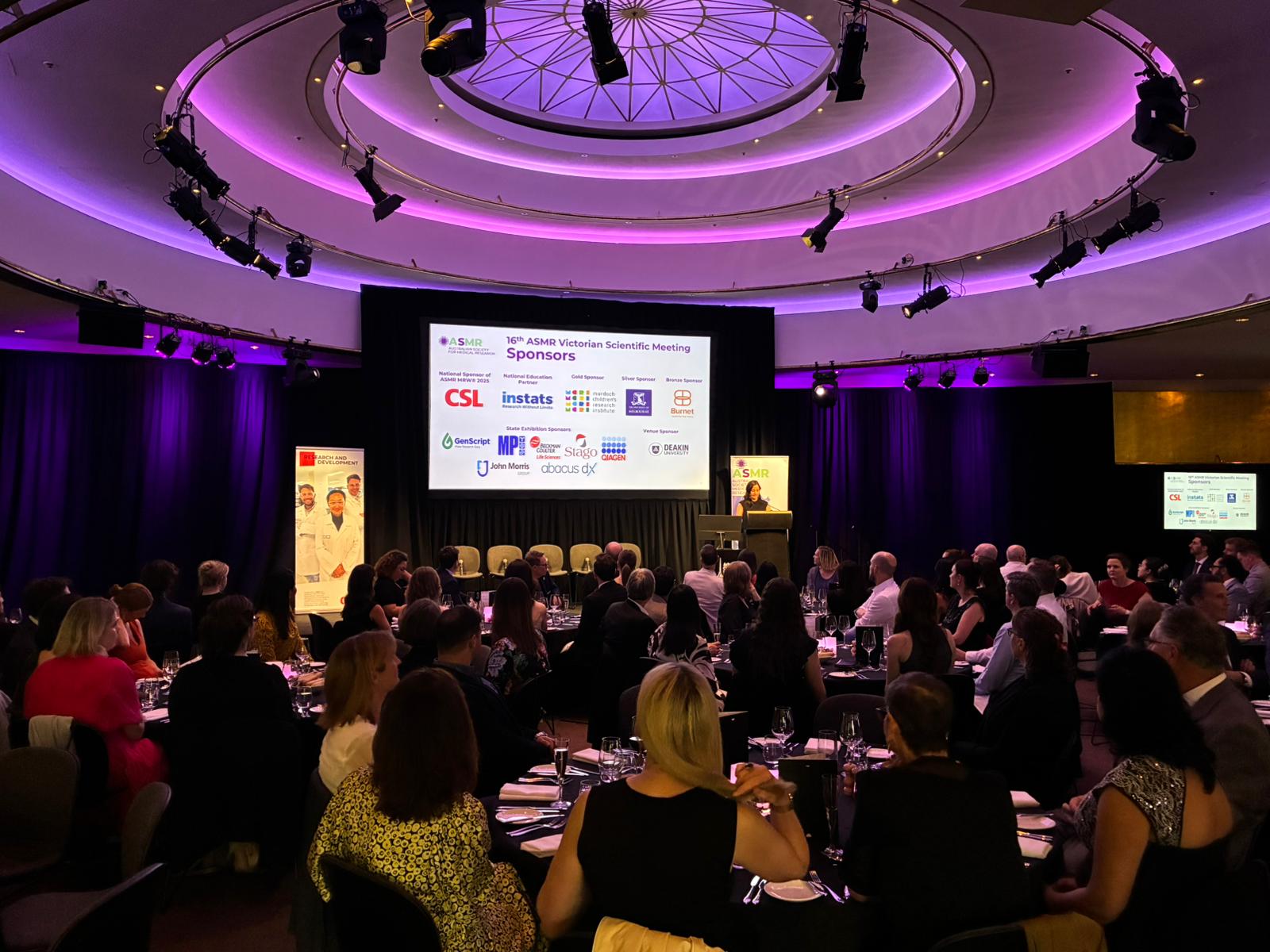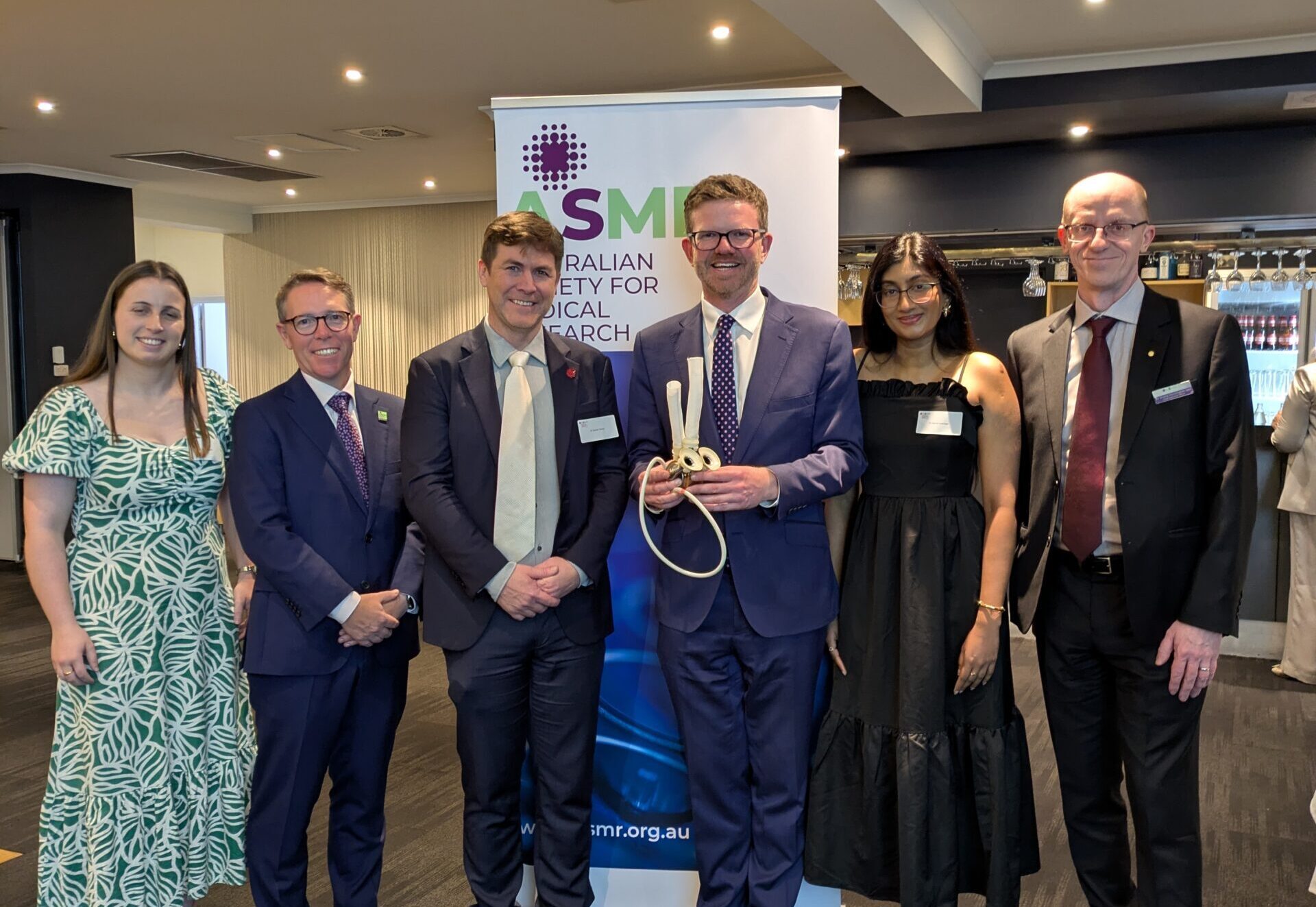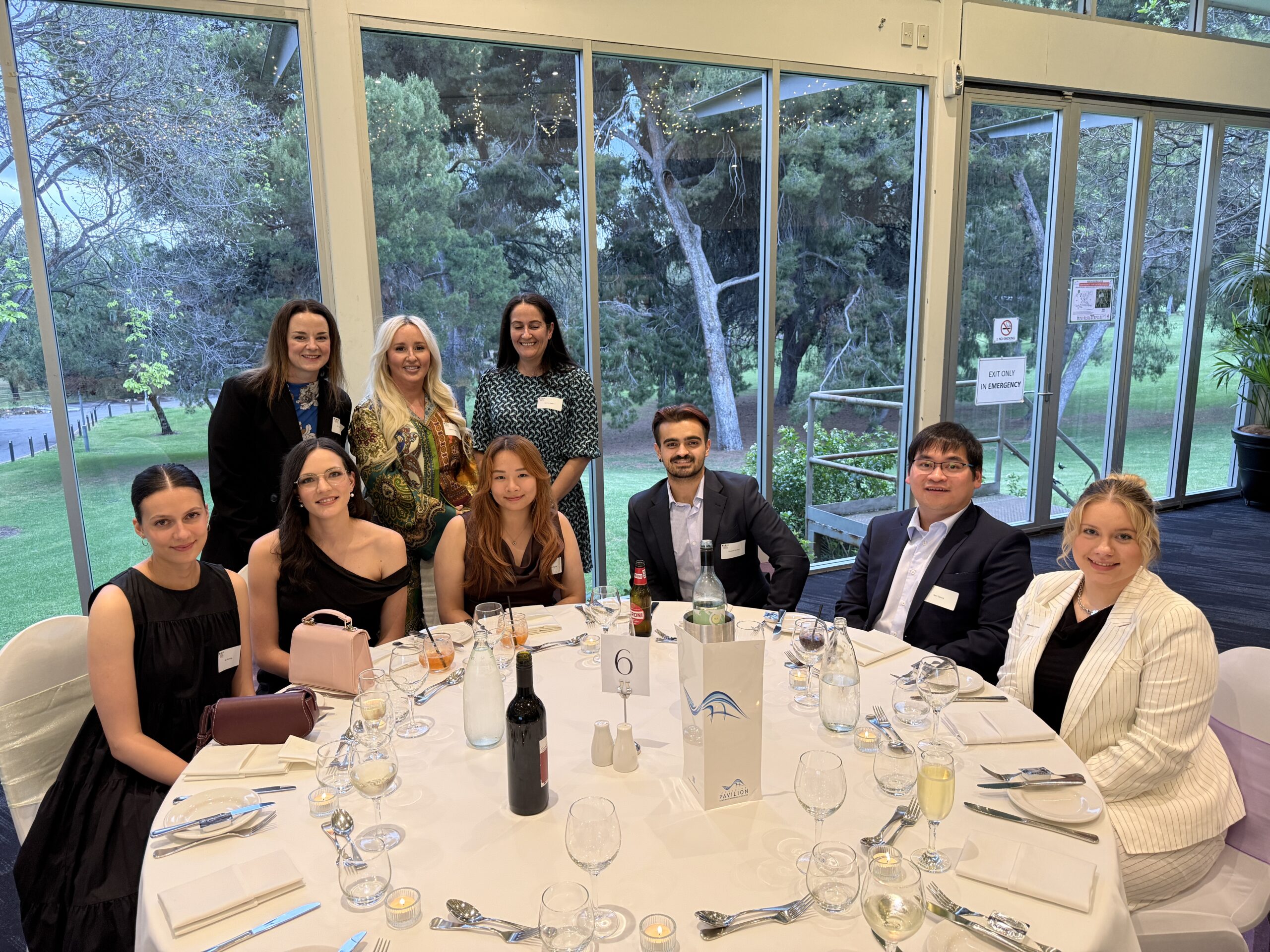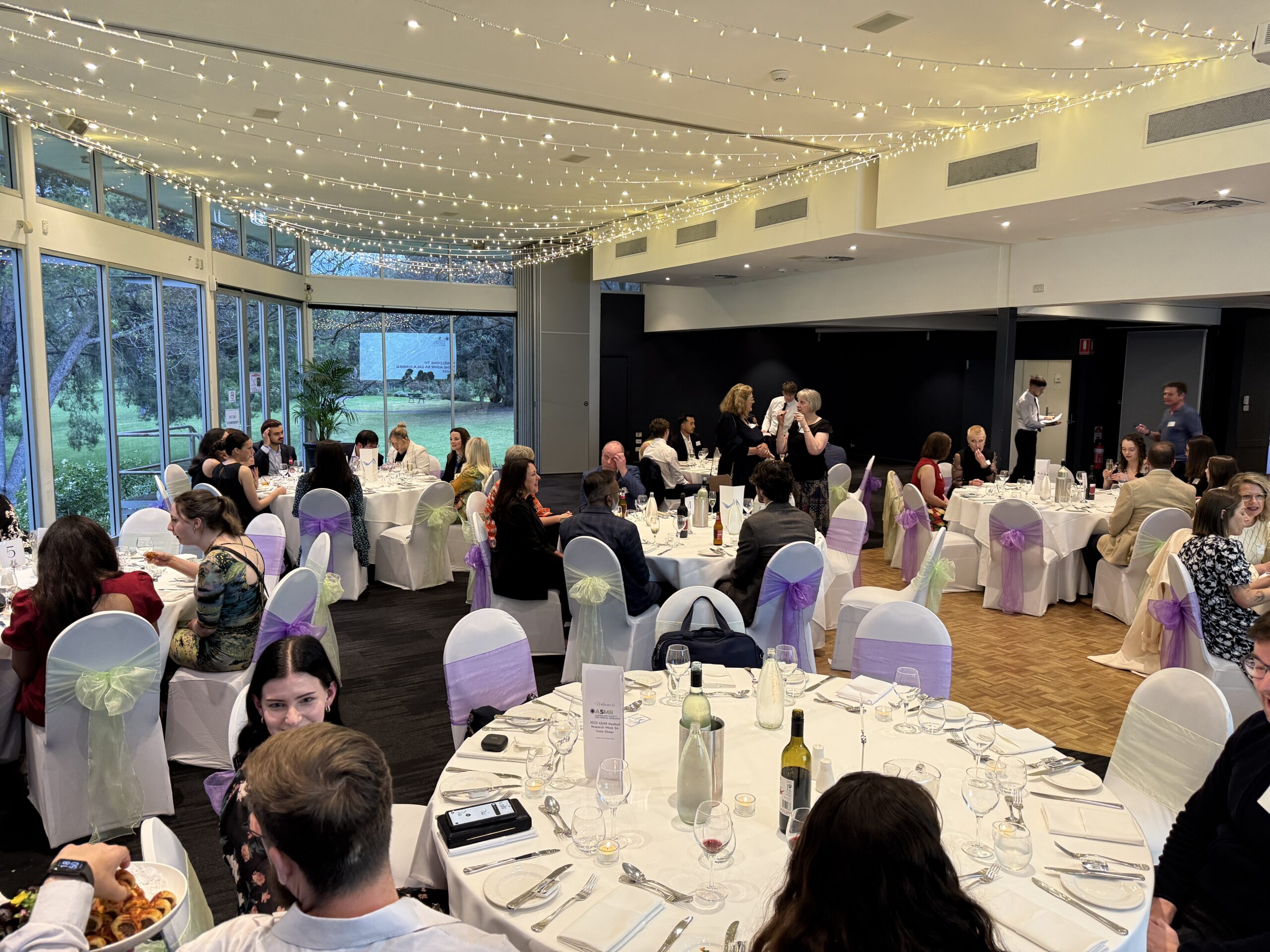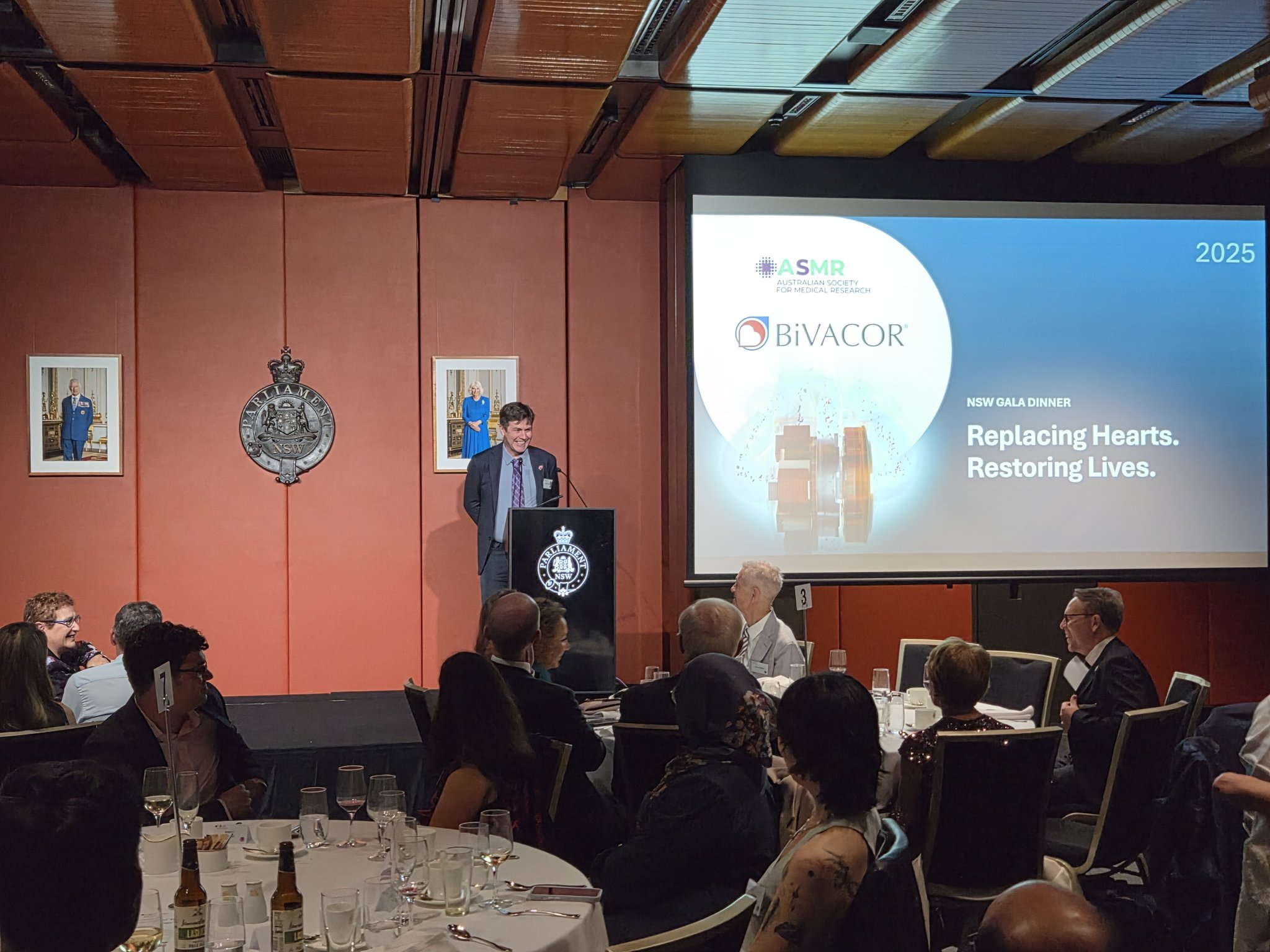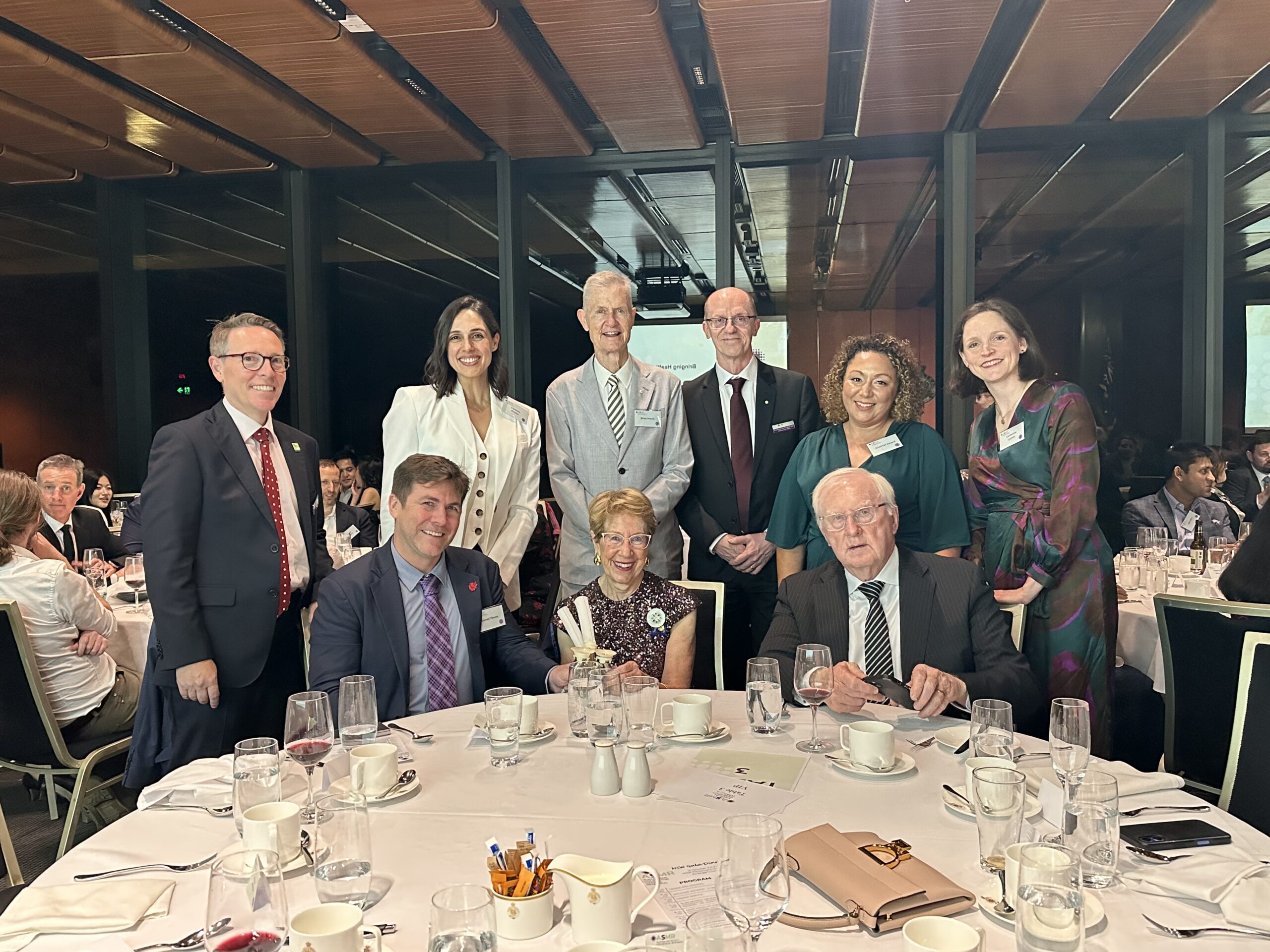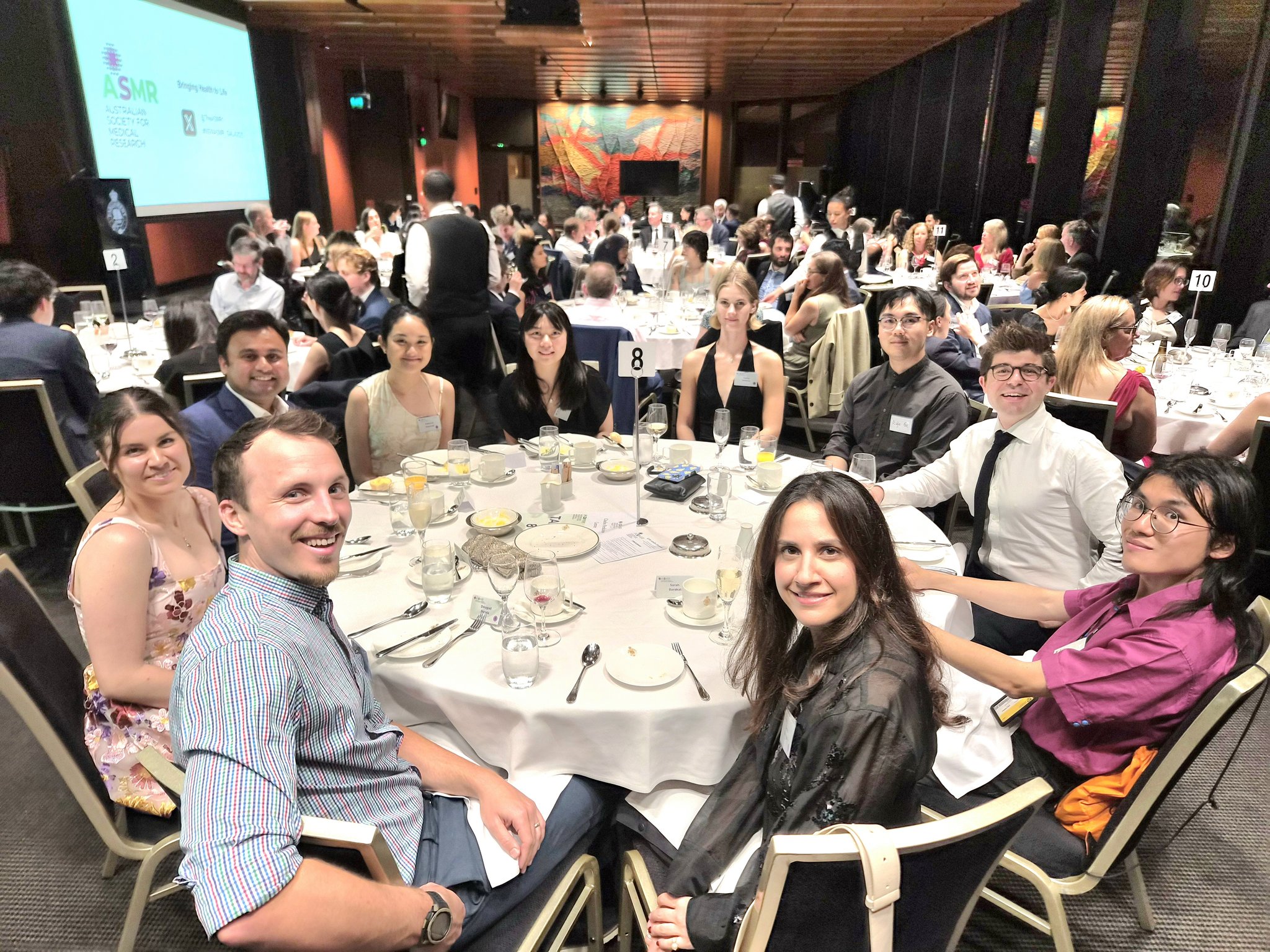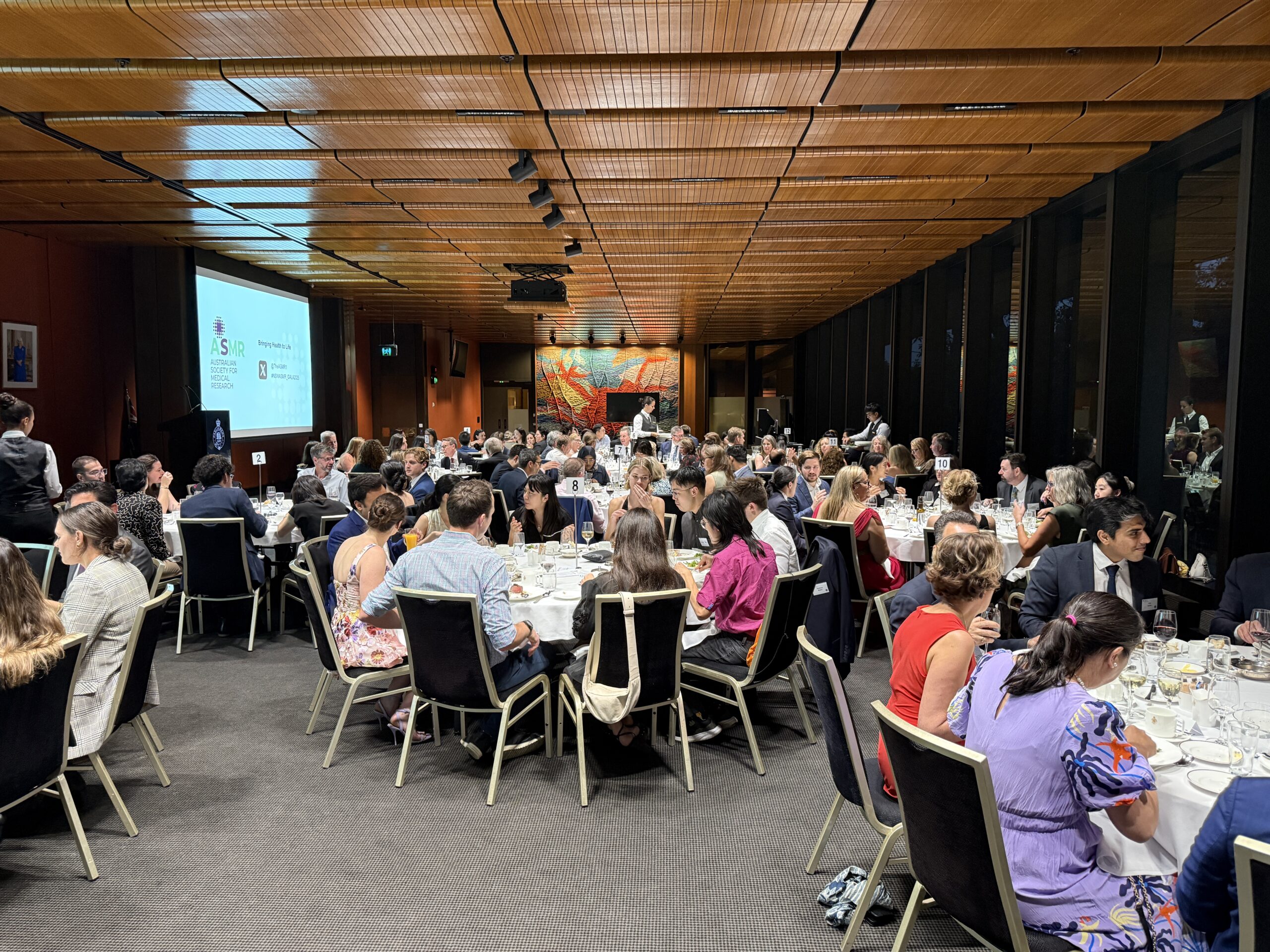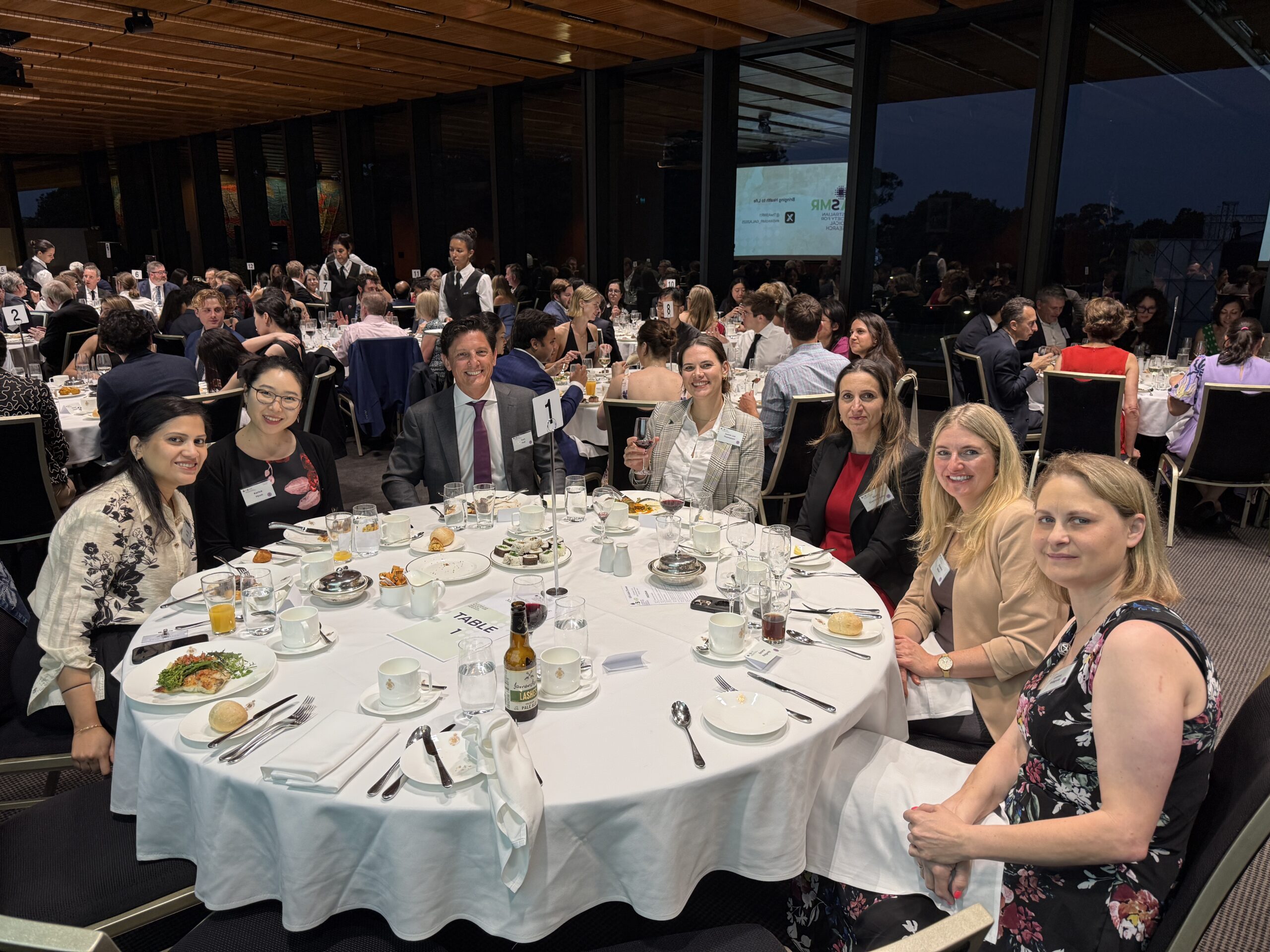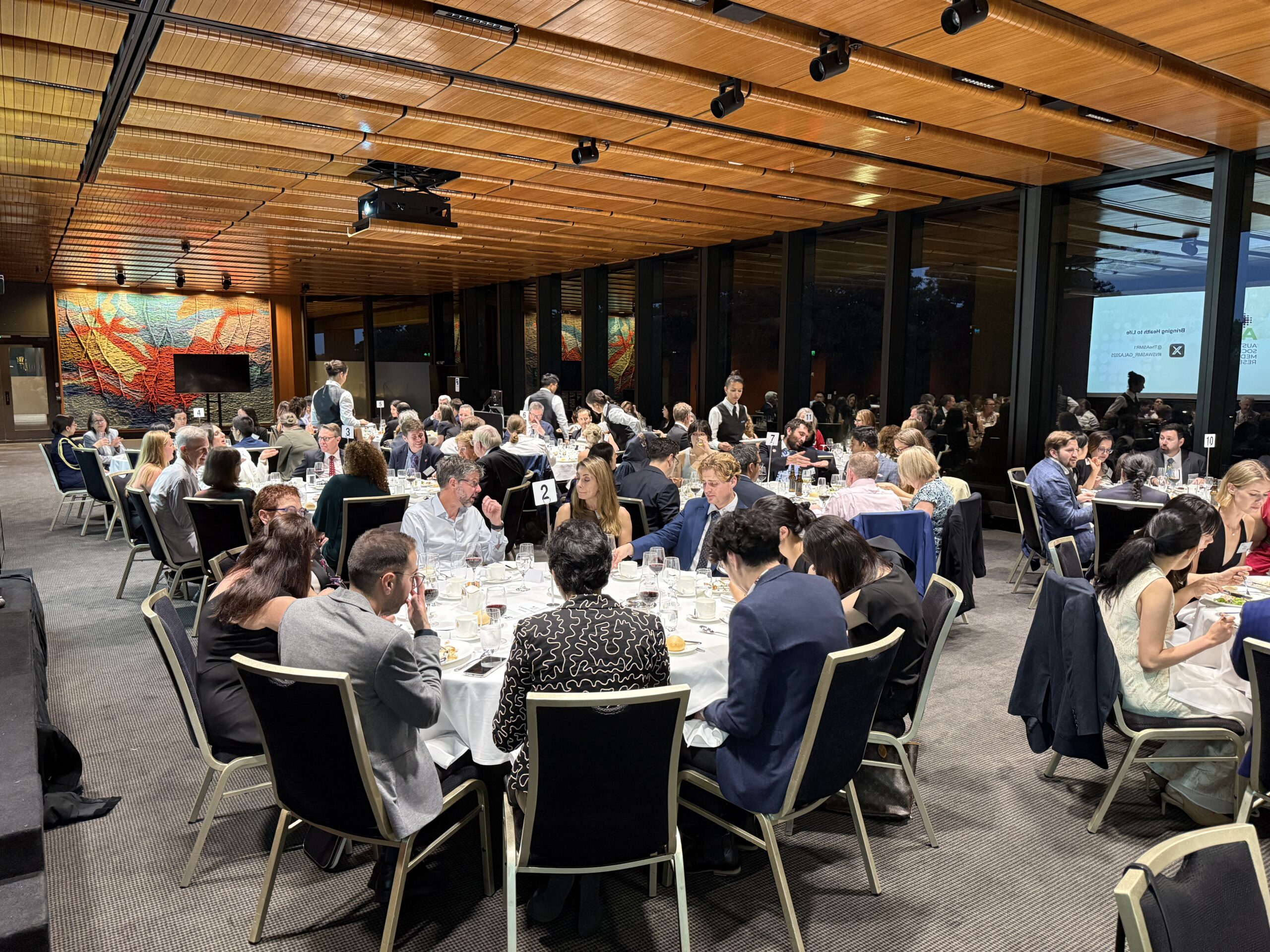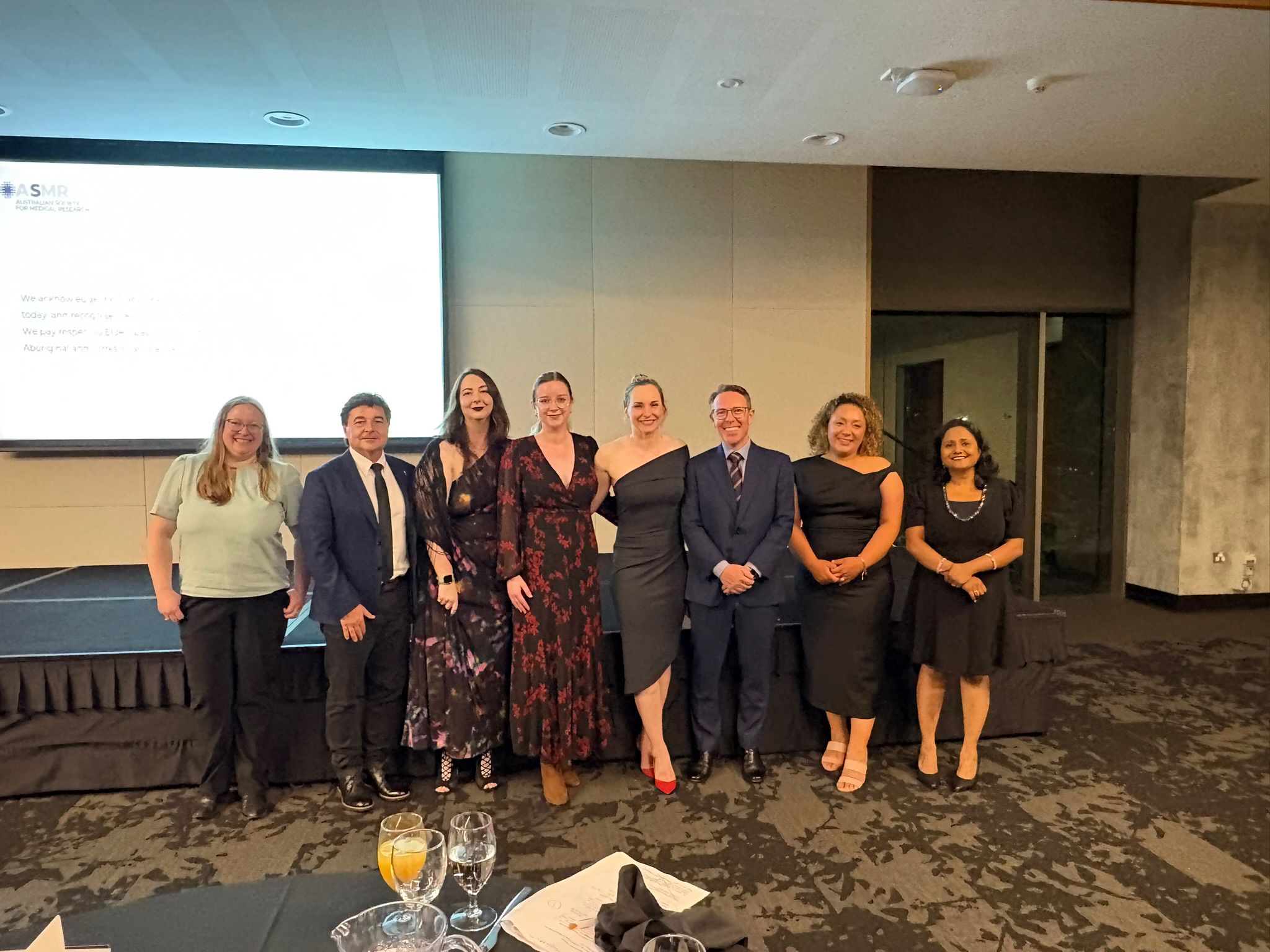The Australian Society for Medical Research (ASMR) has successfully concluded its 2025 Medallist Tour, bringing together hundreds of members of the medical research community over the past two weeks to celebrate our distinguished 2025 ASMR Medallist, Dr Daniel Timms.
At each Gala Dinner across Australia we welcomed hundreds of representatives from research institutions, industry, government, and community organisations, providing a vibrant forum for discussion and inspiration.
We were pleased to honour Dr Timms, inventor of the BiVACOR total artificial heart. Dr Timms is an innovative biomedical engineer whose journey began in Brisbane, where he spent countless hours alongside his plumber father, tinkering with water pumps and constructing imaginative devices.
Dr Timms shared the full 25-year journey behind the creation of the BiVACOR total artificial heart, during which he and his team sought specialised expertise across the world. They studied magnetic levitation in Japan and cardiovascular medical device engineering at the Helmholtz Institute in Germany, before finally joining theTexas Heart Institute to work with the original pioneers of artificial heart research and bring the BiVACOR heart to humans.
Their most recent success came this year when an Australian man was the first in the world to be discharged from hospital after implantation with a BiVACOR total artificial heart as he awaited a heart transplant. After having the device for 105 days, the patient received a heart transplant on March 6, 2025.
One striking theme throughout this story was the impact of funding instability and scarcity. The BiVACOR team received only $700,000 over their first ten years of research, and listeners were left wondering:
What if there had been more funding, earlier? Could this lifesaving innovation have reached the clinic a decade earlier?
Building on this theme, Dr Timms discussed the need for Government funding to support medical research during the period before venture capital steps in, crediting the Queensland Government’s support of OneVentures for funding that supported BiVACOR at a critical time.
He discussed the need for full disbursement of the Medical Research Future Fund (MRFF), which was designed to support Australia’s future with an investment of at least $1 billion each year. Currently, only about $650 million is being released, and while the excess funds sit unused, Australia’s health and medical research ecosystem is on the brink of failure and brilliant ideas that could transform healthcare are going unfunded.
An enormous congratulations to all our ASMR state committees for organizing these successful events. The Medallist Tour would not be possible without their hard work and dedication, and they are a credit to our community.
If your organization is interested in partnering with us for the 2026 ASMR Medallist Tour, don’t hesitate to get in contact. Together, we can continue celebrating excellence in medical research while advocating for the investment Australia’s health future deserves.

